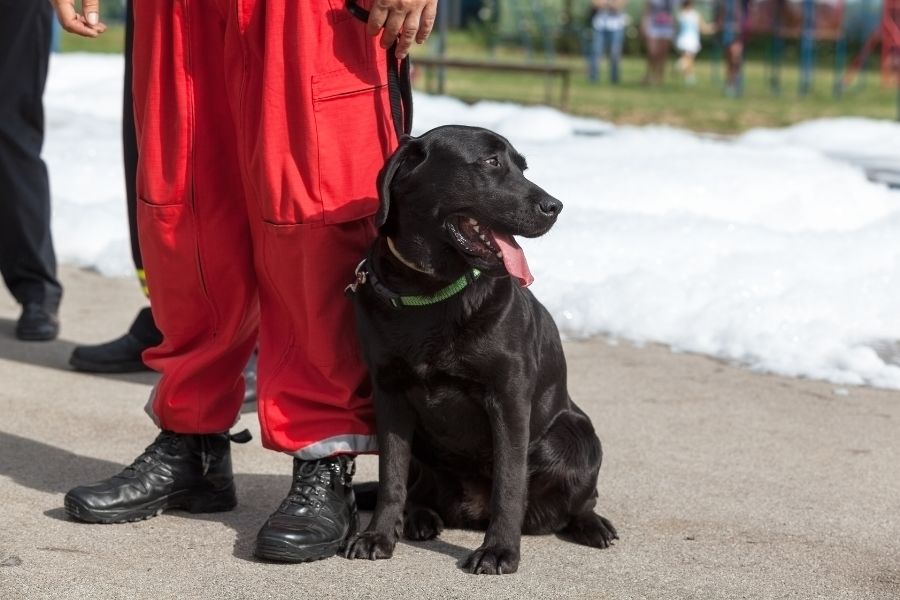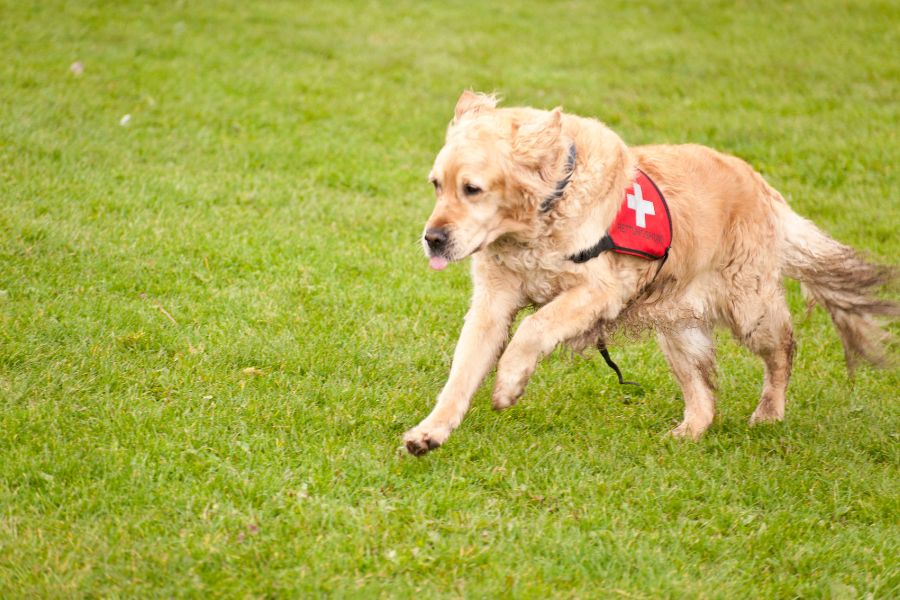Dogs are amazing creatures that provide us with companionship, love, and security. They are also incredibly versatile and can be trained to perform a variety of tasks, from gundog to search dogs.
While the process of training a successful gundog or search dog is not easy, it is definitely worth the effort. In this podcast and blog post, we will explore with Guest Expert Georgie Armstrong of K9 BrainTraining some of the similarities and differences between these two types of uses for dogs.
In this week’s podcast, Georgie shares some anecdotes about her own experiences training gundogs and search dogs. We hope you enjoy listening and reading!
We’d also like to send our huge congratulations to Georgie on the birth of her daughter since we recorded this podcast!
Podcast Edition:
 Both disciplines require a high level of obedience from the dog
Both disciplines require a high level of obedience from the dog
A lot of people might think that obedience is the only thing required for a successful working dog, but there is actually much more to it. In addition to obedience, dogs must also have drive, courage, agility, and a strong prey instinct in order to track and succeed.
A working dog must also possess focus, self-control, and attention to detail in order to perform precise movements and commands. However, just like any job or sport, the foundation for success in both gundogs and search dogs lies in the relationship between handler and dog.
This bond is built through trust and clear communication, ensuring that both humans and canines are able to work effectively as a team. At the end of the day, whether it’s sniffing out drugs or performing fancy tricks on cue, obedience is an absolutely crucial component for a successful working dog or for search dogs.
The handler must be able to read the dog’s body language
As a dog handler, it is important to not only understand how to properly teach and train a dog but also to be able to read their body language and interpret what they are trying to communicate.
By understanding the subtle cues a dog gives off through their posture, facial expressions, and actions, we can better assess their emotions and needs during training. This often allows us to modify our approach and provide a more successful outcome for both the dog and its owner.
Additionally, being able to read canine body language can help prevent aggressive or fearful behaviours before they escalate. In short, the ability to interpret a dog’s nonverbal communication is integral for effective training and building strong relationships with our four-legged friends.

Search dogs must be well-socialised
As a dog owner and lover, I can attest to the importance of proper socialisation. By exposing our canine companions to a variety of experiences and individuals during puppyhood, we can ensure they grow up to be well-adjusted, confident dogs. Not only will this prevent undesirable behaviours like fear aggression or territoriality, but it will also make it easier for them to comfortably interact with both humans and other dogs.
But just as important as giving our pups positive social experiences with other dogs, it is also crucial to teach them how to appropriately behave in various situations. That way, both they and those around them can enjoy stress-free interactions throughout their lifetime.
A structured training program is essential for the success of both gundogs and search dogs
As we all know, setting goals is important for achieving success. However, merely setting goals is not enough – you also need a structured training program to help guide your progress and keep you accountable. Without a plan in place, it can be easy to get sidetracked or lose motivation.
A well-designed training program helps establish a clear path towards reaching your goals and keeps you on track with regular check-ins and measures of progress.
In addition, a structured program allows for flexibility and adjustments as needed, ensuring that you are constantly adapting and improving. So don’t just set your goals – make sure to develop a structured training program to help reach them.

There is a great deal of satisfaction in training a successful gundog or search dog
As a proud dog owner, Georgie’s shown there’s something undeniably satisfying about watching her dog perform an exercise flawlessly. Whether it’s retrieving a fallen bird or finding lost hikers, the hard work of training truly pays off in the form of a successful gundog or search and rescue dog.
The bond between handler and dog also deepens as they work together towards these common goals. Of course, not every moment of training is easy and there are certainly challenges along the way.
But ultimately, the satisfaction and joy that comes from achieving these shared successes make it all worth it. Training a successful gundog or search dog takes dedication, patience, and perseverance, but the rewards are immeasurable. There is great satisfaction in seeing your hard work pay off and successfully completing a challenging training program with your canine partner.
Further Listening: Protecting Our Protectors – The Work of The NFRSA with Retired Service Animals
Podcast Mention: Sporting Saint Tennis Ball Wrap
Join Our Online Community!
Jump on our email list for free tips and insights delivered to your inbox monthly. No spam - just quick bites of value.

